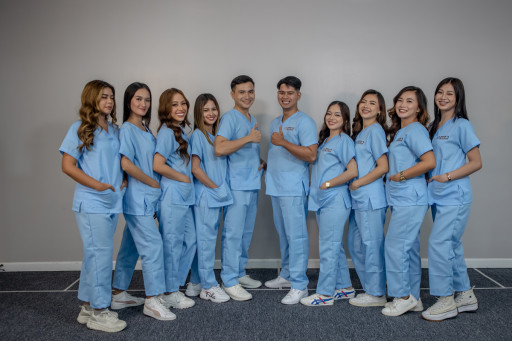Treatment Options and Considerations for Tackling Teen Acne
Health - Trend Magazine originally published at Health - Trend Magazine

Dr. Loretta Pratt
Dermatologist Dr. Loretta Pratt with Advanced Dermatology PC with Tips for Treating Teen Acne
— Dr. Loretta Pratt
CHADDS FORD, PA, USA, July 12, 2022 /EINPresswire.com/ — There are many options today for treating teen acne and no one approach works for every patient. “For the best results, dermatologist need to customize the approach to match each teenage patient,” says dermatologist Dr. Loretta Pratt with Advanced Dermatology PC. Dr. Pratt adds that there are many considerations when determining an effective treatment plan including the teens’ lifestyle and willingness to comply with the recommended treatment.
There’s often a social and emotional element with teen acne and the symptoms can vary with age, heredity and habits. “In some cases, teenagers have unrealistic expectations for the treatment and as such, they sometimes don’t stick with the treatments long enough to see the results. This is an ongoing challenge for dermatologists to better educate their young patients and manage expectations for the best long-term results, Dr. Pratt adds.
Understanding Acne
“Although acne is not new and almost every teenager has it at one point in their lives, the exact cause of acne remains unknown,” notes Dr. Pratt. In broad strokes it is caused by a couple of related factors. They include the rise in male sex hormones occurring in all teens, which transmits the sebaceous (oil) glands into overdrive. Another factor is heredity: in most cases, pimply teens have at least one parent with their own history of acne. In addition, other influencers for acne typical for many adolescents include psychological stress, makeup/cosmetics (too much or unsuitable makeup and moisturizers with acne inducing ingredients), pressure or irritation from sports equipment, environmental exposures, and overly fervent cleaning and scrubbing. Lastly, diet and nutrition also likely play a role in causing acne, though additional research is needed in this area.
Treatment Alternatives for Teens
The typical first step of acne treatment for teens is topical medications. The most conventional nonprescription alternatives are benzoyl peroxide, mild acids like salicylic acid, and sulfur-based products. If results aren’t seen from topical nonprescription medications, dermatologists will recommend prescription-strength topical medications such as topical antibiotics, sulfur based products and retinoids (derivatives of Vitamin A) such as tretinoin (Retin-A), adapalene (Differin), and tazarotene (Tazorac). Each of these medications come in gels, lotions, creams, soaps, liquids, and pads, so the patient can choose what they prefer. The catch is that all of these treatments necessitate compliance, meaning that the teenage patient needs to be diligent and consistent in using them for positive results.
“It is typical when treating teen acne that sometimes things get worse before they get better, says Dr. Pratt. The reason this happens is that the medications accelerate the life cycle of all the pimples, including tiny pimples that would have taken longer to come to a head without the medicine.” Also, it’s easy to over-use topical acne medicines, particularly by teenagers who are hoping for a faster resolution of their acne. In most cases, acne medications need to be used in small amounts to avoid dryness, irritation, burning, or redness. When patients incorrectly use acne medication they can become discouraged and quit using the medications before they’ve had a chance to work. Lastly, some acne medications may interact with the sun. Dr. Pratt says the dermatologist needs to educate patients about the best ways to minimize and manage the side effects.
When nonprescription and prescription topical medications aren’t providing the desired results, stronger options include prescription oral medications: antibiotics such as Doxycycline and oral retinoids, (isotretinoin (Sotret, Claravis, Amnesteem, formerly sold as Accutane), and hormonal therapy (birth control pills and spironolactone). As with any pill, these drugs must be taken as prescribed. Sometimes this is challenging for teenagers. However, some teens favor pills to creams since there is a perception that they are easier to use. “We find that sometimes the adolescent who won’t use topical medications will be particularly compliant with oral medicines,” adds Dr. Pratt.
Dermatologists have additional tools for treating teen acne. Sometimes in-office procedures such as laser or light therapy, acne surgery and corticosteroid injections for large or painful pimples can be helpful. These procedures don’t require compliance (with the exception of making it to the appointments), and as a result they are often a good choice for teen patients.
In some situations, adolescent acne is precipitated by psychological issues, says Dr. Pratt. “Studies have shown that stress can exacerbate acne. Moreover, research has shown that having acne can create or worsen depression and social anxiety.” Regrettably being depressed or anxious can substantially affect a patient’s compliance with a treatment plan.
Dr. Pratt concludes that the good news for teenagers is that there are more options today for treating teen acne than ever before. With the help of a dermatologists and compliance with the treatment plan, improvement and minimization of acne can be achieved.
Bio: Loretta Pratt, MD, is board-certified in Internal Medicine and Dermatology. She is in practice with Advanced Dermatology PC in Chadds Ford, PA.
Advanced Dermatology P.C. and the Center for Laser and Cosmetic Surgery (New York & New Jersey) is one of the leading dermatology centers in the nation, offering highly experienced physicians in the fields of cosmetic and laser dermatology as well as plastic surgery and state-of-the-art medical technologies. www.advanceddermatologypc.com
Melissa Chefec
MCPR, LLC
+1 203-968-6625
[email protected]
![]()
Health - Trend Magazine originally published at Health - Trend Magazine

 ,
, Autism testing for kids 4 and under in Arlington Heights, Deerfield, and Naperville fills a much-needed gap for local families.
Autism testing for kids 4 and under in Arlington Heights, Deerfield, and Naperville fills a much-needed gap for local families. Boost Efficiency and Elevate Patient Care With DocVA’s New Virtual Assistant Services
Boost Efficiency and Elevate Patient Care With DocVA’s New Virtual Assistant Services New patent granted assists hospitals with greater coverage to support drug waste events
New patent granted assists hospitals with greater coverage to support drug waste events Enhancing water and medical gas system management and emergency preparedness through comprehensive visual surveying documentation
Enhancing water and medical gas system management and emergency preparedness through comprehensive visual surveying documentation American Heart Association consortium advances development of evidence-based health tech solutions
American Heart Association consortium advances development of evidence-based health tech solutions